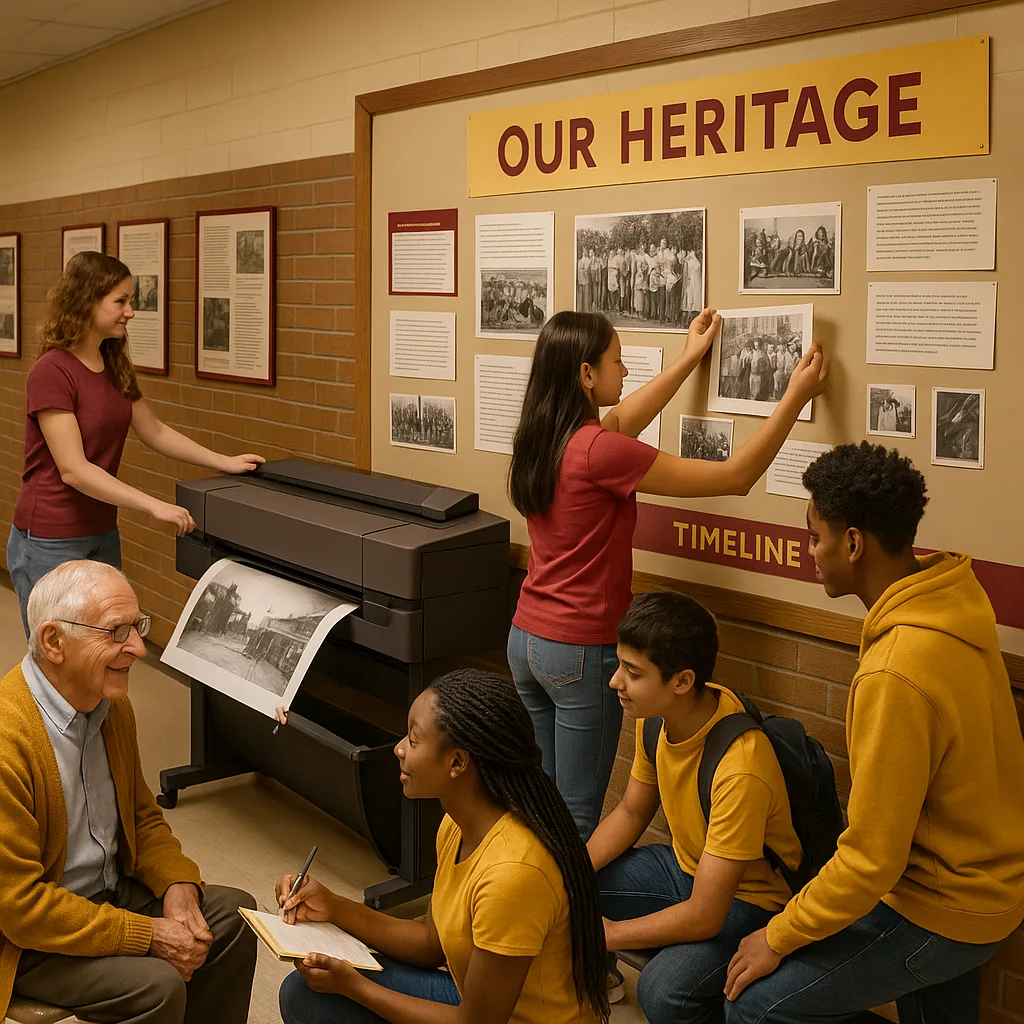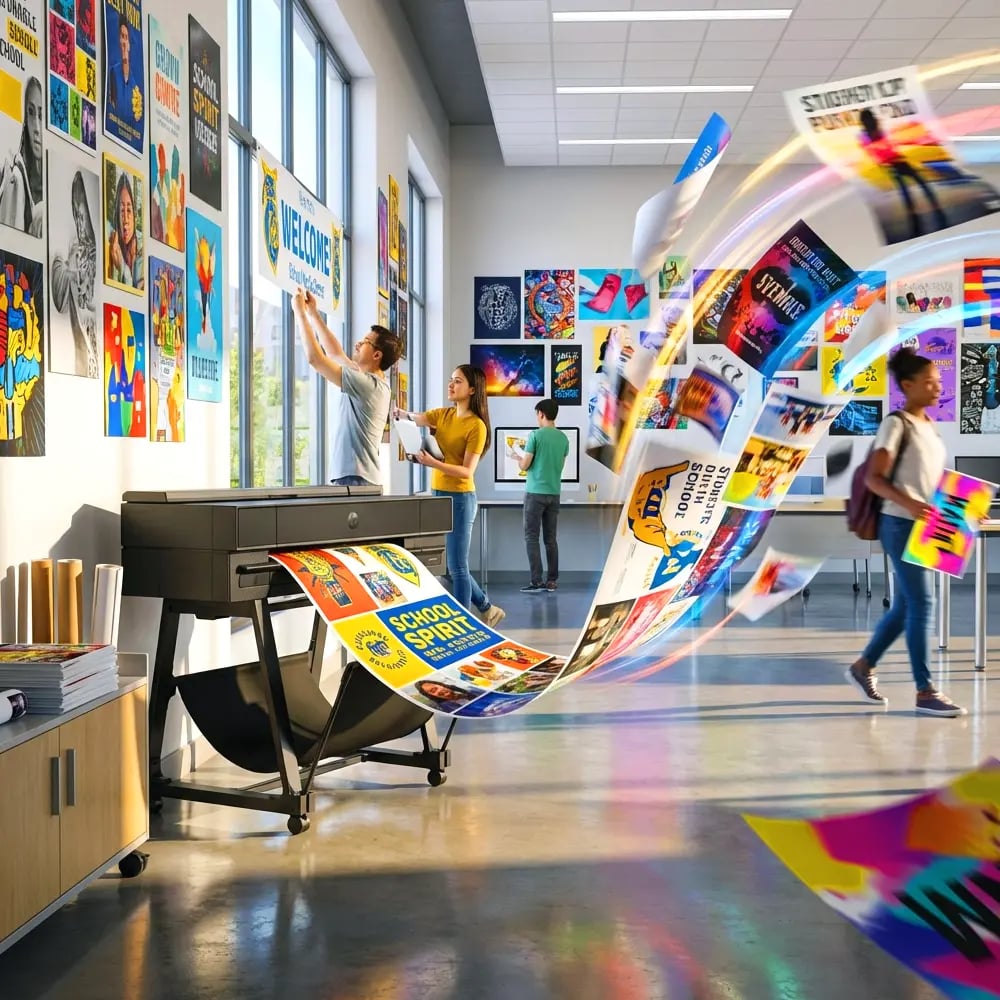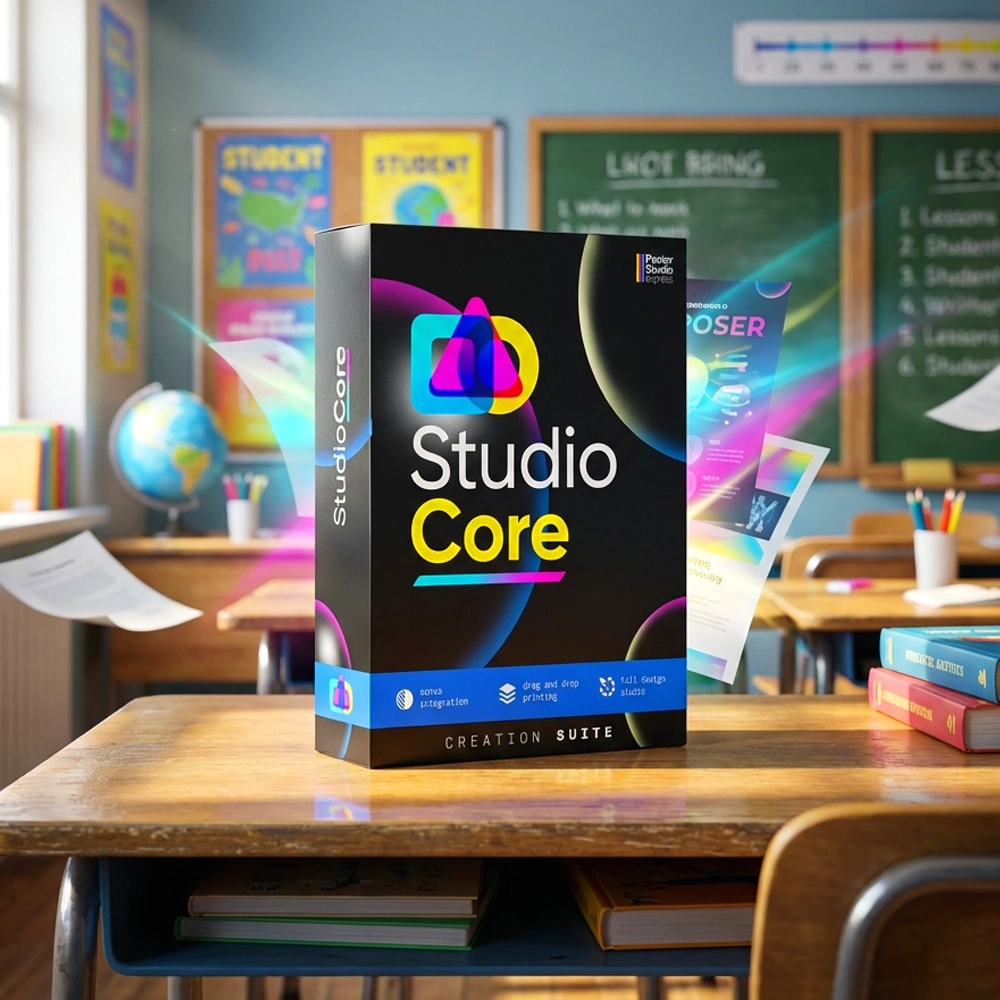
Community Heritage Walls: A Living Classroom
Picture this: Maria Gonzalez’s tenth-grade history class at Lincoln High stands before a 36-foot heritage wall displaying century-old photographs, transcribed oral histories, and student-created timelines of their town’s founding families. Moreover, each panel represents weeks of interviews with community elders, archival research at the local historical society, and careful digital restoration work. This transformative project began with a simple poster maker for schools heritage walls initiative funded through Title I.

Why Heritage Walls Transform Learning
Community heritage walls serve multiple educational objectives beyond standard history curriculum requirements. First, they connect students directly to primary sources through elder interviews and artifact documentation. Second, these projects develop critical research skills aligned with California’s History-Social Science Framework emphasis on historical thinking. Third, they foster intergenerational relationships that strengthen school-community bonds.
Furthermore, heritage wall projects address several state standards simultaneously. For instance, California’s Ethnic Studies Model Curriculum calls for “student-centered and culturally relevant pedagogy” that examines local histories through multiple perspectives. Similarly, the Common Core State Standards for English Language Arts require students to “gather relevant information from multiple print and digital sources” while assessing credibility. These museum-quality displays demonstrate mastery across disciplines.
Creating a Poster Maker for Schools Heritage Walls Program
Student engagement increase when working on heritage projects
Community members willing to share stories with students
Schools report improved parent participation after heritage walls
Step-by-Step Implementation Guide
Launching a heritage wall project requires careful planning across multiple phases. Initially, teachers must secure administrative support and identify funding sources like Title I, Title III for multilingual displays, or local education foundation grants. Next, establishing community partnerships with historical societies, libraries, and elder organizations provides essential resources and expertise.
Phase 1: Research and Documentation
Students begin by forming research teams focused on specific themes: founding families, local industries, cultural celebrations, or significant events. Each team develops interview protocols following oral history best practices from the Library of Congress. Subsequently, they schedule meetings with community elders, preparing thoughtful questions about personal experiences and family histories.
Phase 2: Design and Production
Once research concludes, students transform raw materials into compelling visual narratives. Therefore, having access to the best poster maker machine becomes crucial for producing museum-quality displays. The Education Studio 44 Poster Maker handles large-format historical reproductions with archival-quality inks that resist fading for decades.
Preservation Techniques for Archival Materials
Digital Scanning
Convert fragile documents to high-resolution filesBest Practices
Scan at 600 DPI minimum for photographs. Save master files in TIFF format. Create working copies in JPEG. Always handle originals with cotton gloves.Climate Control
Maintain proper temperature and humidity levelsStorage Guidelines
Store materials at 65-70°F with 30-50% relative humidity. Use acid-free folders and boxes. Keep documents away from direct sunlight.Display Methods
Present materials safely for long-term viewingProtection Tips
Use UV-filtering glass or acrylic. Mount with archival corners, never adhesive. Rotate displays every 3-6 months to prevent light damage.Interview Techniques and Oral History Collection
Successful heritage walls depend on compelling personal narratives gathered through skilled interviewing. Students must learn active listening techniques, cultural sensitivity, and proper documentation methods. Additionally, preparing interview guides helps maintain focus while allowing natural conversation flow.
Essential interview preparation includes researching the interviewee’s background, preparing open-ended questions, and testing recording equipment beforehand. Furthermore, students should practice with classmates before conducting actual interviews. This preparation ensures respectful, productive conversations that yield rich historical content.
Best Poster Maker Machine Features for Heritage Projects
When selecting equipment for heritage wall production, certain features prove essential. Consequently, the best poster maker machine combines professional color management with educator-friendly operation. The Education Studio 36″ Package A+ includes everything needed: dual-roll capability for different media types, vertical trimmer for clean edges, and waterproof inks ideal for long-term displays.
Funding Strategies for Heritage Wall Projects
Multiple funding streams support heritage wall initiatives beyond traditional school budgets. Title I funds apply when projects serve disadvantaged student populations by connecting them with community resources. Similarly, Title III supports multilingual heritage displays that celebrate diverse cultural backgrounds. Local businesses often sponsor panels featuring their founding stories.
Grant opportunities abound for heritage preservation projects. The National Endowment for the Humanities offers preservation assistance grants for smaller institutions. State humanities councils provide project-based funding for oral history initiatives. Additionally, cost-effective solutions from Poster Studio Express help stretch limited budgets while maintaining professional quality.
“Our heritage wall transformed how students see themselves in history. Using our poster maker for schools, they created professional displays that rival museum exhibitions. Parents now bring relatives to see family stories preserved for future generations.”
Sarah Chen, History Department Chair
Roosevelt High School, Fresno
Community Impact and Long-Term Benefits
Heritage walls create lasting connections between schools and communities far beyond initial installation. Alumni return to add their stories, creating living archives that grow over time. Local media coverage generates positive publicity highlighting student achievement and community pride. Most importantly, these projects validate diverse cultural experiences often absent from textbooks.
Academic benefits extend across disciplines as students develop research, writing, design, and presentation skills. Moreover, working with primary sources teaches critical evaluation of historical evidence. The lifetime design service from Poster Studio Express ensures ongoing support as heritage walls expand annually with new student discoveries.
Schools report increased parent engagement when families see their histories honored publicly. Community organizations partner more readily with schools demonstrating cultural respect through heritage preservation. These strengthened relationships support broader educational initiatives from mentorship programs to career exploration opportunities rooted in local industries and traditions.
Ready to Create Your School’s Heritage Wall?
Transform student research into lasting community treasures with professional-quality printing solutions.







